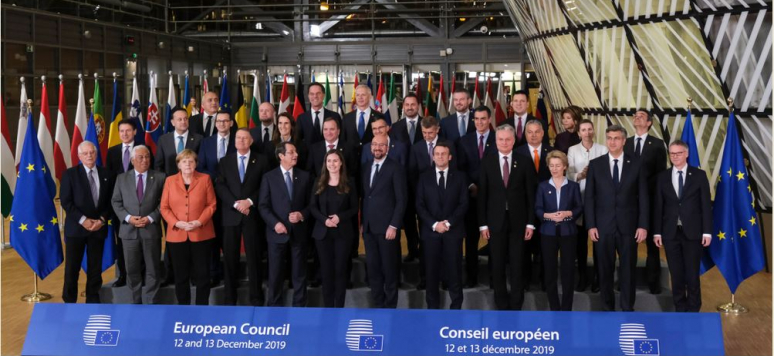Dossiers d'actualité - The Twelve Labours of the European Green Deal

Following the 18 May Franco-German initiative and ahead of next week's critical presentation (27 May) by the European Commission of the European recovery plan aligned with the carbon neutrality objective, Marc-Antoine Eyl-Mazzega, Director of Ifri's Center for Energy & Climate, analyses the key issues that will make or break the Green Deal's energy and industrial aspects.
The 23 April 2020 European Council stressed that recovery strategies will aim to accelerate the sustainable and digital transitions, calling the Green Deal an essential pillar.
Marc-Antoine Eyl-Mazzega notes: “This ambitious project, EU's new raison d'être, has passed its first resilience test. It is highly needed yet is still very fragile”. At a time when the EU faces an existential challenge, this memo stresses that “strategic and rapid reinforcing measures to the Green Deal are needed in light of the current economic, social, geopolitical, geo-economic and possibly, future institutional crises”.
Marc-Antoine Eyl-Mazzega notes: “Now is the time to throw all the forces into the battle as massive financial resources will be unlocked that need to be geared towards accelerating the energy transition in fostering cost-effective investments and creating jobs. The EU must also step up its policies and prepare for a degradated geopolitical and geo-economic environment that requires more power politics. This requires strong cohesion, to accelerate on achieving strategic autonomy and deploying an assertive industrial strategy for low carbon technologies”.
> Read the brief available in English only (pdf): "The Twelve Labours of the European Green Deal" [1]
The Twelve Labours of the European Green Deal identified in this briefing note are:
- Fostering political cohesion
- Giving a clear policy and regulatory direction to reduce risks and costs
- Making energy efficiency a top priority
- Adopting a new policy paradigm and stepping up investment support
- Focusing on achieving the end goal
- Avoiding misleading decarbonization scenarios
- Addressing the electricity infrastructure and supply security challenges
- Implementing an assertive industrial strategy with low carbon technologies energy systems as pillars of the strategic autonomy objective
- Unleashing contributions from cities
- Securing citizens' trust and support
- Leading the battle for the digital transformation, data control & processing
- Responding to a deteriorating geopolitical and geo-economic environment: a specific responsibility for Germany
This memo builds on the Industrial Strategy and Circular Economy Action Plan and also feeds into the preparation of the European Commission's flagship Smart Sector Integration Strategy, a key element of the Green Deal, whose publication has been maintained for June 2020. Ifri's Center for Energy & Climate has already contributed through its Perspectives on a European Hydrogen Strategy, by Cédric Philibert.
